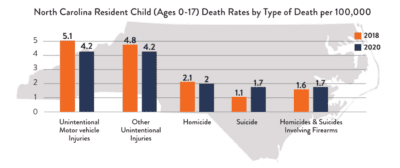

|
|
Mental health problems do not discriminate. People of all ages, including school children and college students, can experience problems like stress, anxiety, and mood disorders. An important aspect of teaching is safeguarding students, and recognizing signs of mental health problems is a vital skill for keeping students safe.
Mental health awareness allows teachers to better support students with mental health issues and help them to cope with stress, anxiety, or low mood. Teachers can have an incredibly positive impact when they create a supportive environment in which students feel safe to talk about their emotional well-being. When students’ mental well-being is high, they’re more likely to have a happy and successful education. Here are four important reasons why teachers need to be aware of their student’s mental health.
1) Student life can cause stress, anxiety, and burnout
Eighty-eight percent of college students describe school life as stressful. When stress isn’t adequately managed, it can lead to serious physical and mental health problems including high blood pressure, heart disease, and a decreased immune system.
Stress in students comes from a variety of places, with pressure to perform academically as a big one. That’s why stress often peaks during exam season. It’s common for students to feel overwhelmed by their workload, particularly if they also have a part-time job or are dealing with complex issues in their home life. For college students, financial worries are an additional common stressor. Students of all ages can also experience stress related to their interpersonal relationships.
2) Students are still recovering from the COVID-19 pandemic
Although the World Health Organization has officially announced the end of the COVID-19 pandemic, the emotional impact isn’t over. The pandemic threw the lives of children and young people into chaos. Students were isolated from their friends and peers for lengthy periods of time. This has led to a regression of social skills, particularly among very young children, which can lead to isolation, loneliness, and subsequent low mood. The pandemic also hampered education, which has caused many students to become anxious about their academic futures after online classes inhibited their ability to learn.
Many children developed immense anxiety as they followed news stories focusing on transmission rates and death tolls throughout the pandemic. Some children acquired a fear of illness and germs, while others developed newfound anxiety surrounding their health or the health of their family members or friends. With all this in mind, there’s little wonder that rates of depression and anxiety have doubled in children since the pandemic. It’s more important than ever before for teachers to be aware of the psychological problems that are prevalent in students affected by COVID-19.
3) Early signs of mental illness often occur in the teenage years
According to the National Alliance on Mental Illness, the early signs of lifelong mental health conditions begin by age 14 in 50% of people. The sooner clinical intervention is provided, the more likely an individual is to recover or to manage their condition successfully throughout their life.
When teachers learn how to recognize mental health symptoms in their students, they can flag their concerns to parents and other professionals and help students access the care they need as soon as possible. Teachers with good mental health awareness can therefore play an important role in helping young people with mental illness to get set up for a successful future.
4) Young people often find it hard to ask for help
Research conducted in 2022 found that 64% of children rarely or never talk about their mental health with their parents. There are several reasons why children can find it hard to ask their parents for help when they need it. First, they might not know enough about mental health to know that the difficulties they’re facing can be treated. Second, they might fear embarrassment due to the social stigma surrounding mental illness. Third, if they’re already living in a challenging home environment, they might worry that their request for help could cause negative repercussions.
When teachers are aware of mental health issues, they can identify early signs of problems in students and encourage them to open up about how they feel. When students know that their teachers are knowledgeable about mental health, they often feel more comfortable initiating conversations with teachers as the first step in seeking support.





